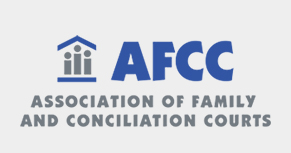You may have heard the term “executive functioning” among parents, teachers, and seen it on the internet. It may seem like a new trend, but actually, psychologists and neuropsychologists have been studying and finding ways to measure these skills for decades.
So what are executive functions? They are a group of highly interrelated skills that operate in coordination with each other towards goals of filtering distractions, prioritizing tasks, setting/achieving goals, and controlling impulses. The research team of Gerard A. Gioia, Peter K. Isquith, Steven C. Guy, and Lauren Kenworthy are among the leaders in this field and have more clearly defined the specific abilities included in the term executive functions.
tive
- Inhibition – The ability to stop one’s own behavior at the appropriate time.
- Shift – The ability to move freely from one situation to another; to think flexibly.
- Emotional Control – The ability to modulate emotional responses by bringing rational thought to accept and endure emotional feelings.
- Initiation – The ability to begin a task or activity and independently generate ideas, responses, or problem-solving strategies.
- Working Memory – The capacity to hold information in mind for the purpose of completing a task.
- Planning/Organization – The ability to manage current and future-oriented task demands.
- Organization of Materials – The ability to impose order on work, play, and storage of spaces.
- Self-Monitoring – The ability to monitor one’s own performance and to measure it against some standard of what is needed or expected.

Children aren’t born with these skills but with the potential to develop them just like any other skill. Growth-promoting environments provide children with scaffolding or supports that help them learn and practice necessary skills. Adults can encourage the development of executive function skills by:
- Establishing routines
- Modeling social behavior
- Fostering creative play and social connection
- Teaching and modeling how to cope with stress
- Providing opportunities for vigorous exercise
- Helping children to break more complex tasks into “chunks”
- Over time, allowing opportunities for kids to direct their own actions with decreasing adult supervision (when appropriate)

We know from personal experience that we’re not “up-to-form” if we’re stressed, sick, or sad. The executive functions are the first to suffer when the physical body suffers and it suffers disproportionately – meaning more than any of the other brain functions. This is also true for your child. When he/she is sick is not the time to work on a difficult or complex task.
For more information on how to support children developing these skills, contact our office.

Nancy Heilman, PhD, is available at the Poulsbo and Silverdale offices.
Call 360-692-3970 to schedule an appointment..





